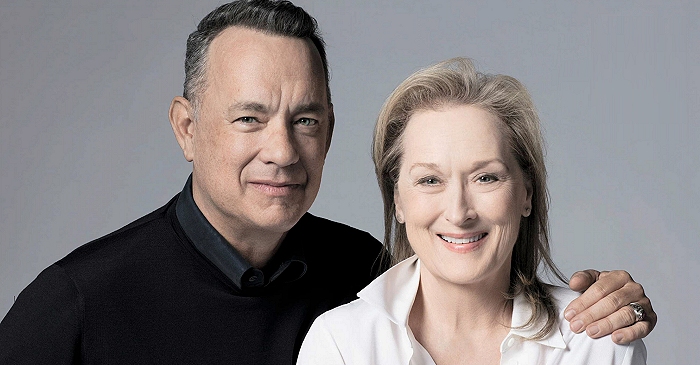|
Simply Streep is your premiere source on Meryl Streep's work on film, television and in the theatre - a career that has won her the praise to be one of the world's greatest working actresses. Created in 1999, we have built an extensive collection to discover Miss Streep's body of work through articles, photos and videos. Enjoy your stay.
|
Celebrating
25 years
of SimplyStreep
|
Live Magazine, a supplement of the Daily Mail has published a wonderful article on the making of “The Iron Lady” with many quotes from all of the filmmakers, giving insight on their views on Thatcher and the making of the film. All this is accompanied by stunning new pictures. An excerpt is below, the article can be read on their website and in the magazines archive.
“I worked on the voice. It’s one of the hardest things I’ve done. The really tricky part was that she studied how to produce her voice di.fferently, and sustain a certain amount of public speaking, and deepen her voice, enrich it, support it with breath. So I had to get the two di.fferent voices – the one that she began with, which is quite light and sort of trips along, and then (imitates Thatcher’s older voice) suddenly this sort of authority comes out. I listened to her speaking, mostly, rather than watching her on TV. Listening gives you the posture, everything. I would speak anything – poetry, other people’s speeches – just to have it be second nature, to think in that voice, like another language.”
“I saw Margaret Thatcher once, in 2001, when my daughter Mamie was at Northwestern University. She was on a lecture tour. We were up in the balcony in the cheap seats. She was beautiful, and that was a shock, because we all thought of her in America as sort of dowdy. But we are very snobby about our women in public o.ffice. She was going to lecture for an hour, and there would be 30 minutes, precisely, for a question-and-answer session. She spoke for the hour and then she took questions for an hour and a half. And as time went on, she became even more enlivened and focused, speaking in beautifully wrought paragraphs. She obviously loved the subject matter: statesmanship and America’s role in the world and the special relationship with Reagan, the end of the Cold War. She was extraordinarily controlled and impressive. My view of her as a woman changed during this process. I admire her achievement. I stand in awe of it, even while not agreeing with a lot of the policies. The fact that she got things done, even though many people didn’t like her, was extraordinary. She accepted the fire that came at her and took it. I hope she’ll see the film as an empathetic attempt to understand the size of what her life was, her place in history, what she did, and the human cost we ask our leaders to pay.”

















